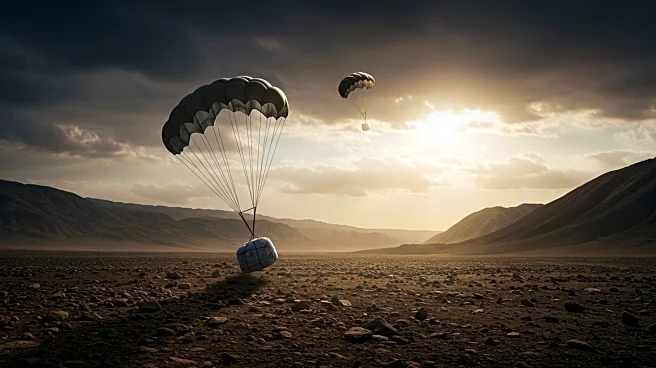What's Happening?
Recent reports have highlighted a severe starvation crisis in Gaza, with the United Nations noting that malnutrition levels are at their highest since the onset of the Israel-Hamas conflict. In response to global condemnation, Israel has permitted some aid deliveries by air. However, BBC Verify has found that on ten occasions, aid was dropped into areas where the Israeli military has warned civilians not to enter due to safety concerns. Even in areas considered safe, the delivery of aid can still pose risks to those attempting to retrieve it.
Why It's Important?
The starvation crisis in Gaza has significant humanitarian implications, affecting thousands of children and families. The delivery of aid into danger zones raises concerns about the safety and effectiveness of relief efforts. This situation underscores the urgent need for coordinated international intervention to ensure safe and adequate distribution of essential supplies. The crisis also highlights the broader geopolitical tensions in the region, impacting diplomatic relations and humanitarian policies.
What's Next?
The international community may increase pressure on Israel to ensure safer and more effective aid distribution. Humanitarian organizations are likely to advocate for more secure access to affected areas. The ongoing conflict and humanitarian crisis may prompt further diplomatic discussions and potential policy shifts to address the needs of the civilian population in Gaza.
Beyond the Headlines
The ethical implications of delivering aid in conflict zones are profound, raising questions about the responsibilities of governments and international bodies in protecting vulnerable populations. The crisis may also lead to long-term shifts in humanitarian strategies and policies, emphasizing the need for conflict-sensitive approaches to aid distribution.









